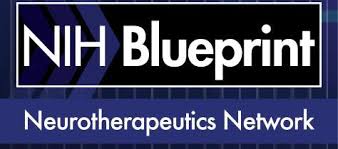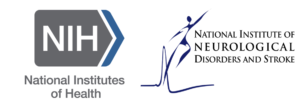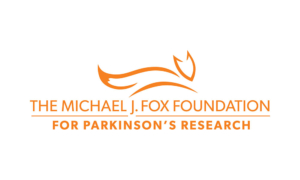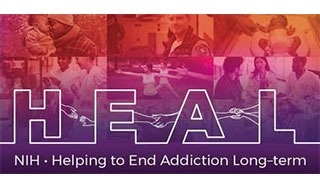Funding Opportunities for Neuroscience Research
Blueprint Neurotherapeutics
Since 2011, the Blueprint Neurotherapeutics Network (BPN) provides non-dilutive funding to small molecule drug discovery and development. Funding can be used for work done in-house, for NIH-funded contract research organizations (CROs), and for consultants with expertise in various aspects of drug discovery and development. BPN opportunities are offered by 15 NIH Institutes and Centers that are supporting neuroscience research.
The BPN program is intended for projects requiring medicinal chemistry optimization and CRO support through phase I clinical testing. The aims of the program are two-fold: to de-risk potential therapeutics so the industry will invest in them, allowing potential new drugs to reach patients efficiently and to provide funding and resources typically lacking in the research community.
Opportunities include:
- Small Molecule Drug Discovery and Development for Disorders of the Nervous System (U44 Clinical Trial Optional)
- Small Molecule Drug Discovery and Development of Disorders of the Nervous System (UG3/UH3 Clinical Trial Optional)
Click here for more information and funding opportunities.
BRAIN Initiative
Neurological and psychiatric disorders, such as Alzheimer’s, Parkinson’s, autism, epilepsy, schizophrenia, depression, and traumatic brain injury, greatly affect both individuals and their families, as well as society as a whole. Despite advances in neuroscience, the underlying causes of most neurological and psychiatric conditions remain largely unknown, due to the complexity of the human brain. To increase our understanding of the human brain, the NIH introduced the Brain Research through Advancing Innovative Neurotechnologies (BRAIN) Initiative. This initiative supports and funds researchers to produce a revolutionary new dynamic picture of the brain that, for the first time, shows how individual cells and complex neural circuits interact in both time and space. This picture will fill major gaps in our current knowledge and provide unprecedented opportunities for exploring exactly how the brain enables the human body to record, process, utilize, store, and retrieve vast quantities of information, all at the speed of thought.
Opportunities include:
- Biology and Biophysics of Neural Stimulation and Recording Technologies (R01 Clinical Trials Optional)
- Research Opportunities Using Invasive Neural Recording and Stimulating Technologies in the Human Brain (U01 Clinical Trial Required)
Click here for more information and funding opportunities.
IGNITE
An early-stage therapy development funding program, the Innovation Grants to Nurture Initial Translational Efforts (IGNITE) is a feeder program to the later-stage therapy development programs such as the Cooperate Research to Enable and Advance Translational Enterprises (CREATE) for Biologics and Blueprint Neurotherapeutics (BPN) Programs.
Opportunities include:
- Neurotherapeutic Agent Characterization and In vivo Efficacy Studies (R61/R33 Clinical Trial Not Allowed)
Click here for more information and funding opportunities.
CREATE Bio
The NINDS Cooperative Research to Enable and Advance Translational Enterprises for Biotechnology Products and Biologics (CREATE Bio) program is dedicated to biotechnology product- and biologics-based therapies, which broadly include modalities such as peptides, proteins, oligonucleotides, gene therapies, cell therapies, and novel emerging modalities. The program includes two tracks: the Optimization Track, which supports optimization to obtain a candidate appropriate for entering the Development Track, and the Development Track supports IND-enabling studies for the candidate, as well as early-phase clinical trials.
Opportunities include:
- Nonclinical and Early-Phase Clinical Development for Biologics (U44)
- Optimization Track for Biologics (U01)
Click here for more information.
Clinical Trials
There are a number of funding opportunities available from NINDS for clinical trials in neurology. These include opportunities from NeuroNEXT and StrokeNet. These include:
- Research on Chronic Overlapping Pain Conditions (R01 Clinical Trial Optional)
- Discovery of Biomarkers and Biomarker Signatures for Neurological and Neuromuscular Disorders (R61/R33 Clinical Trial Optional)
- NeuroNEXT Small Business Innovation in Clinical Trials (U44 Clinical Trial Optional)
- NINDS Exploratory Clinical Trials for Small Business (R44 Clinical Trial Required)
- NIH StrokeNet Small Business Innovation Clinical Trials and Biomarker Studies for Stroke Treatment, Recovery, and Prevention (U44 – Clinical Trial Optional)
- NeuroNEXT Clinical Trials (U01 Clinical Trial Optional)
- NINDS Exploratory Clinical Trials (U01 Clinical Trial Required)
- NINDS Efficacy Clinical Trials (U01 Clinical Trial Required)
Michael J. Fox Foundation for Parkinson’s Research
The Michael J. Fox foundation focuses on research related to Parkinson’s disease, and funds basic, translational and clinical research from academia and industry. Current opportunities include:
- The Edmond J. Safra Fellowship in Movement Disorders (click here for more information)
HEAL Initiative
In order to combat the opioid crisis in the United States, the NIH launched the HEAL (Helping to End Addiction Long-term) Initiative. One of the research goals of the initiative is to better understand the mechanisms of pain and to provide alternatives to pain management.
Opportunities include:
- Development of Therapies and Technologies Directed at Enhanced Pain Management (R43/R44 – Clinical Trial Not Allowed)
- Development of Therapies and Technologies Directed at Enhanced Pain Management (R43/R44 – Clinical Trial Required)
Click here for more information and opportunities.









